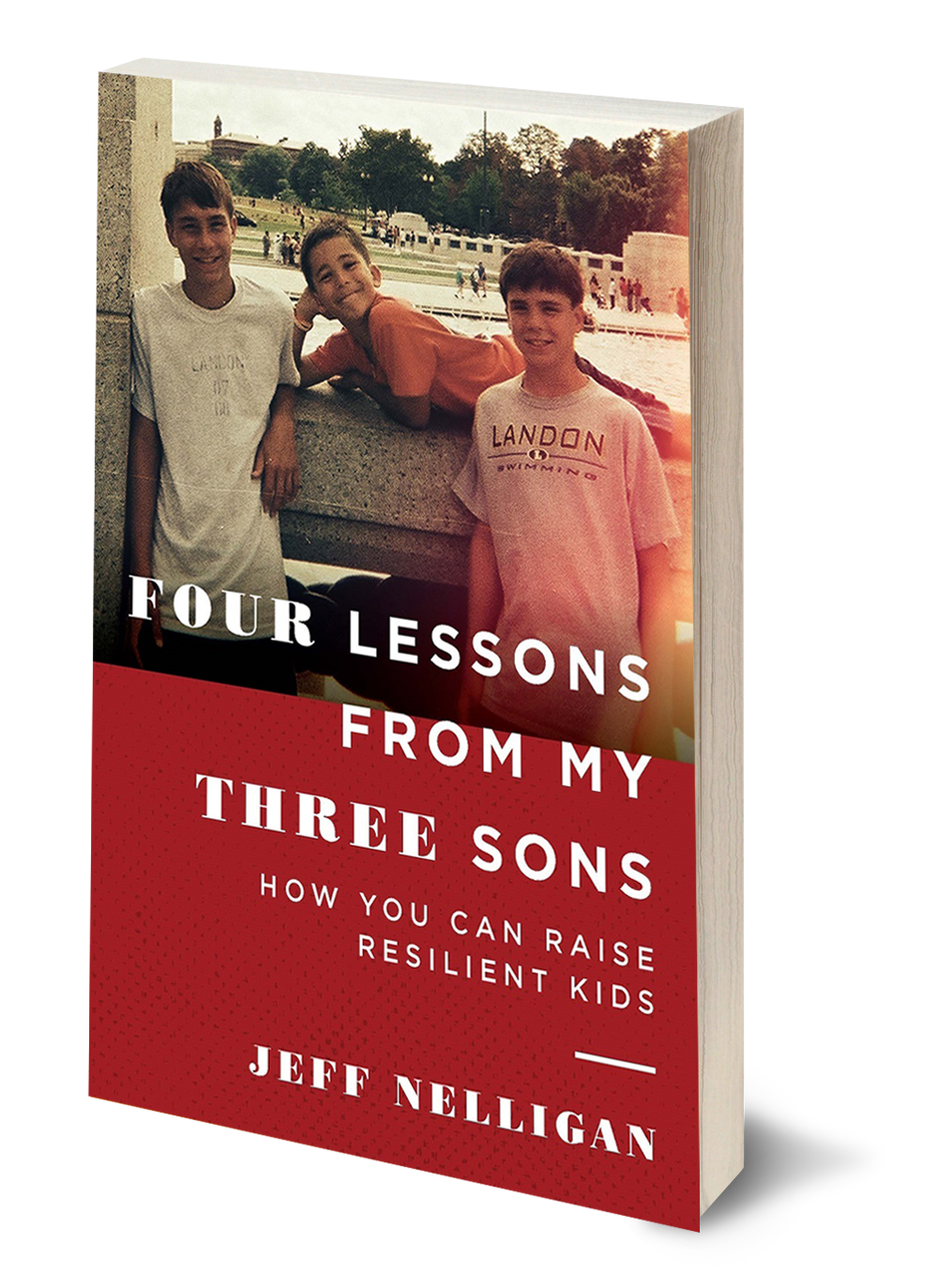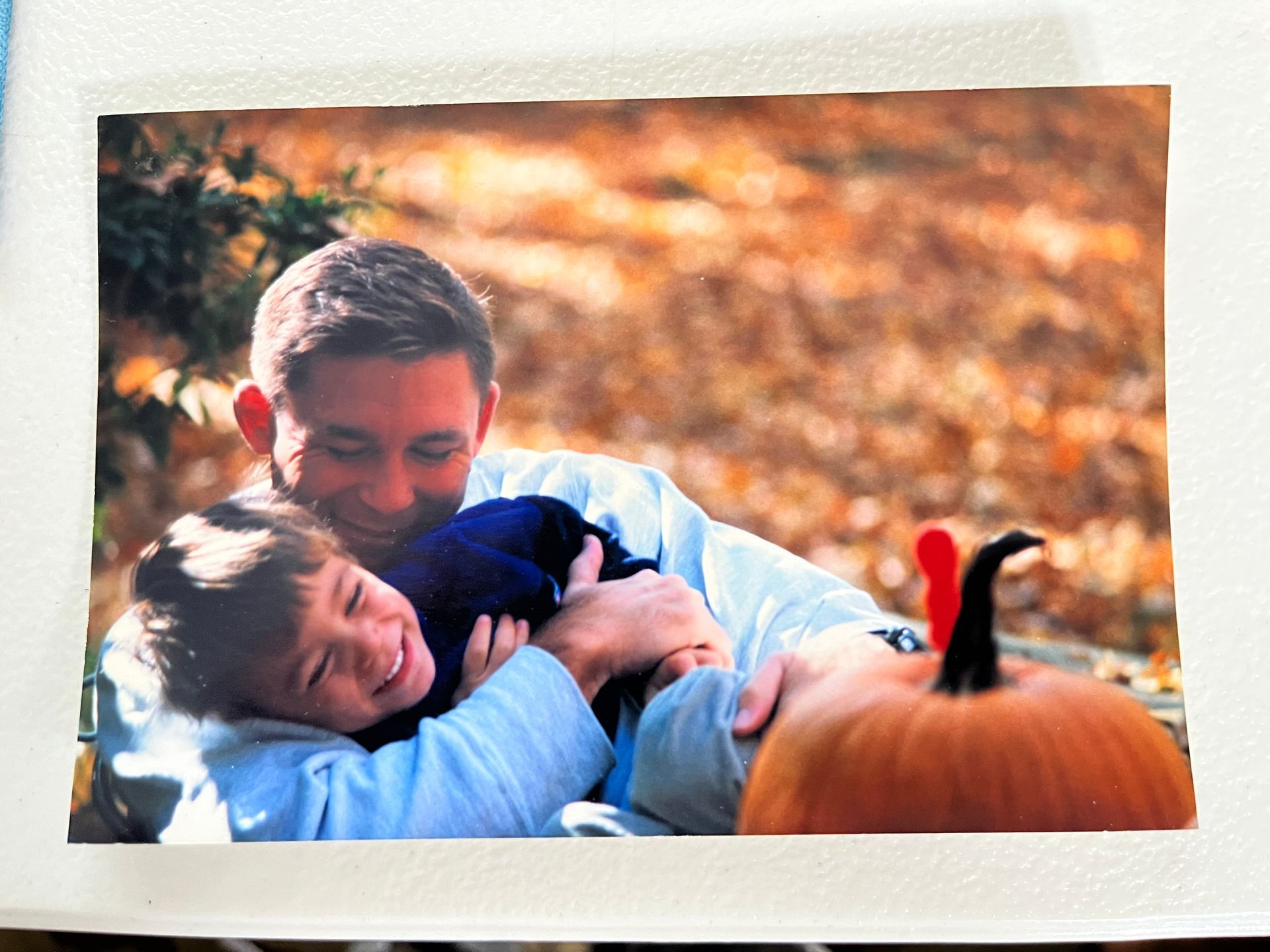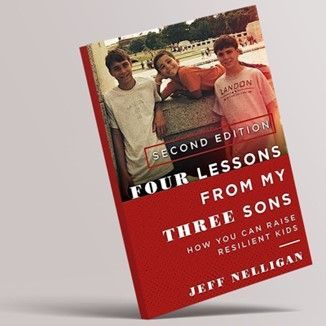How to make your kid’s bad friends his ex-friends
Jeff Nelligan • February 25, 2020
It won’t be pretty - but consider the stakes
It’s a parent’s nightmare: Your once decent and relatively happy kid suddenly begins to change. He (or she) exhibits a changed, distressing personality, a troubling new personal appearance, an edgy attitude, and increasingly testy relations with siblings and with you. Something is not quite right with your child. And you know why.
It’s a parent’s instinct: You know your kid has fallen in with the “wrong crowd,” or to put it bluntly, with kids who are pure, malign trouble, and they are taking your kid down with them.
It’s a parent’s reaction: Something’s gotta be done. You know that at some point – maybe soon - your child will be irretrievably locked into a malevolent clique. And be lost.
Throughout two decades of parenting life, I’ve seen this transformation in kids: Good kids falling in with undeniably awful kids, a once promising adolescent life upended. I also know there’s one sure way to turn this around.
Yes, this way is tough, embarrassing, and ugly – it requires unrelenting intervention and intercession. You, as the parent, have to ratchet up the pressure and heat so high that the kid has no option but to stay away from the bad kids for good.
First off, what’s a bad kid? That’s easy. Any parent can spot a jerk. They’re devious, shifty, and contemptuous, they disdain rules and they are addicted to phones and screens and social media. As ringleaders, they treat their counterparts – girls and boys – with condescension. They are on the fringe at school and you can bet they’re drinking and using drugs - they’re on the edge. C’mon folks, you know who they are.
And here are the six ways in which you break your kid free from them:
1. First up is frank, tough conversation. Get them alone and in solitude – no electronics, not a single individual around, and not in the house with all its distractions. The place has got to be momentous so the kid knows it’s serious. You tell him/her. ‘Hey pal, I’m concerned. You’ve changed – you know it and we all know it. You were on the right road and it’s obvious to everyone you’re not anymore. Tell me about this kid/kids you’re hanging around.’ When the kid explains, or tries to explain, you respond, ‘Ok, well here’s the deal: I don’t want you to see that kid and his/her friends anymore. They are bad news and they will ruin all that you have worked for. This either stops or I am going to intervene and cause you - and our family - humiliation and embarrassment and shame like you’ve never seen.’
2. You monitor your kid. Because this is an electronic age, begin with his/her phone, for which you doubtless foot the bill. You take control of the apps and the messaging services. Monitor and cut way back on video games. Forbid the kid to be in any contact with the bad crowd on any platform.
3. Oh, so your kid is around the bad guys at school? You go to the school and meet with the relevant counselors, perhaps even teachers, and explain exactly your concerns. You make it well known to everyone there that you have major-league concerns about your kid being in the wrong crowd.
If nothing, the shock value will be tremendous. ‘What kind of parent does this?’ the school officials will think.
Answer: One who cares. What will you achieve? You’ve let everyone know exactly what the score is. You have made
an outrageous scene that is remembered. And you can count on it that this will get around to your kid and others that
you are deadly serious.
Answer: One who cares. What will you achieve? You’ve let everyone know exactly what the score is. You have made
an outrageous scene that is remembered. And you can count on it that this will get around to your kid and others that
you are deadly serious.
4. Then, you monitor every moment of after-school activity. You put him or her on a short leash – the schedule is school, whatever sports and activities, and then home. No exceptions. You limit the kid’s hours out on weekends. You require that he/her tell you who he is meeting and hanging around. You follow up to see if the truth is being told.
5. You make a point of maneuvering him into contact with good kids; you reach out to the parents of such kids, and you become relentless in getting your kid with those kids whom you trust and who are on the right path.
6. Every family has family and friends that a kid respects and trusts – you ask them to speak with your kid. What’s to lose?!
Of course, throughout all this, expect major-league arguments and unpleasant scenes and general uproar. Welcome it all because chaos is good – you, the kid, the jerks, realize that your full-scale assault is not going away.
Because what’s the alternative?! Your kid continues to hang around the losers. You “hope” that the situation changes. “He’ll come to his senses,” you say. No, he won’t.
Fear some kind of backlash from the kid? What? Before you intervened, you were already being driven crazy in imagining all the bad outcomes; every phone call after 8 p.m. made you cringe.
If your campaign is successful, your kid - the decent one you once had - is going to realize his or her errors, come back to you, and admit to you at some point that you were right.
#####
ABOUT THE BOOK
Every Dad in America wants to raise a resilient kid.
Four Lessons from My Three Sons charts the course.
Written by a good-natured but unyielding father, this slim volume describes how his off-beat and yet powerful forms of encouragement helped his sons obtain the assurance, strength and integrity needed to achieve personal success and satisfaction. This book isn't 300 pages of pop child psychology or a fatherhood "journey" filled with jargon and equivocation. It's tough and hard and fast. It’s about how three boys made their way to the U.S. Naval Academy, Williams, and West Point – and beyond.

It's 8:30 a.m. on a humid August Tuesday and I’m on the roof of the U.S. Capitol, the Dome rising 280 feet directly above. In my arms is a stack of thin boxes and I’m navigating a plywood gangplank leading to a rusted 15-foot flagpole. A colleague joins me carrying more boxes. She opens one and hands me a 2’ by 4’ American flag which I affix to the pole’s lanyard, raise and lower quickly, unfasten and hand to her as she hands me another. A third colleague brings out more boxes and retrieves the ones containing flown flags. This little dance continues for three straight hours. Afterwards, my colleagues and I carefully re-fold each flag and affix to it a “Certificate of Authenticity from the Architect of the Capitol” reading “This flag was flown over the U.S. Capitol in honor of____” and fill in the blank: “The Greater Bakersfield, California Chamber of Commerce”…the 80 th birthday of Wilbert Robinson of Bowie, Maryland, proud veteran of the Vietnam War…” We will perform this task for five days a week until Congress returns from recess. This is my very first job in Washington, D.C. and obviously, I have what it takes. *** Flag duty began my 32-year run in politics and government, which ended last week. It included four tours of duty on Capitol Hill working for three Members of Congress, two Presidential appointments serving Cabinet officers in the Departments of State and Health and Human Services, posts at two independent agencies, and a career position at FDA. The jobs were a mix of purely political positions where being on the south side of an election meant cleaning out your desk and getting good at catchy LinkedIn posts – twice that happened - and career federal government stints where the stakes were less exhilarating. *** I worked principally as press secretary and special assistant. The former job, a common D.C. occupation, was transformed in 2008 with the onset of social media, morphing from daily pronouncements of your boss’s wisdom on the issues of the day to rapid-fire postings on the obvious unreasonableness, even cruelties of your opponents. Sound familiar? As for the latter occupational specialty, special assistant, the terms ‘bagman’ or ‘fixer’ are more apt: A guy always two steps behind the principal but always ready to step up and fix whatever problem arose in daily political life. Need a special vegan lunch for Congressman Busybody, White House tour tickets for the Big Bad High volleyball team, or the personal phone number of the executive assistant to a heavy-duty lobbyist? I was your guy. Every leader needs a fixer. Like anyone else who works in D.C., I occasionally participated in a glam political moment – you know, that unique, epic event that would never ever be forgotten in D.C. history Until it was. *** The best part about government life was working for many men and women who were at the top of their game in the D.C. Swamp, one of the toughest arenas on the planet. Their success, from the vantage point of your humble correspondent, was attributable to four simple rules of life. “If you can’t measure it, it didn’t happen.” Every office I was in kept metrics on virtually every aspect of the principal’s week – how many meetings and events attended, X posts, interviews, committee votes, constituent letters, action items completed from memos?! Numbers, numbers, and always keeping score – and always the quest to improve. “Never lose it.” In a lifetime of political jobs, I may have heard a boss raise her or his voice half a dozen times, even during and after major-league setbacks. Self-control was their hallmark. One boss, a powerful House Committee chairman once confided to me, “I’m fine that 80 precent of my job is humoring these guys, no matter how crazy they get.” An equally valuable corollary skill: Humility. The ability of these individuals to admit to colleagues and staff when wrong on a particular issue. Which counterintuitively only upped their long-term credibility. “Something’s always gonna go south.” Always the need for a plan C. Every initiative during an upcoming day was scoured for what elements would interfere and how, if they occurred, they could be ameliorated. Hence, in the rare times when things did go south, there was always preparation in advance for getting to 80 percent of what was needed. “Good is not good enough.” Successful politicians and government leaders – and their staffs – never get complacent. If they do, they’re not long for the Swamp. Everyone is always hustling for the edge. A useful corollary learned from an NCO when I was in the Army: Always have your hand up. Volunteering is at the heart of the hustle, the cheerful willingness to take on the new and unknown and do whatever it takes. *** And that’s how it all started. On the second day of my first congressional tour the Member solicited volunteers “for a fun recess job that’ll get you out of the office.” It was flag duty and from that day onwards my government career could only go up. *****










